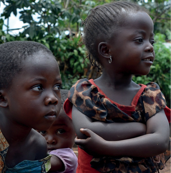Sexual violence care in Médecins Sans Frontières programs in seven countries in Africa. What about men and boys ?
Résumé
Purpose / Background: Often neglected, male-directed sexual violence (SV) has recently gained recognition as a significant issue. However, male victims have fewer access points for care, due to stigma and lack of program adaptation, and their characteristics remain poorly understood and recognised. For several years, MSF has systematically documented characteristics of presentation to care of all victims arriving at its SV clinics in different contexts across Africa, providing a unique opportunity to examine ways of improving males’ access to SV care. The objective of this study was to document the challenge of males in accessing SV care, and to describe key differences of male versus female victims of SV, to strengthen the awareness of frontline workers towards this relatively neglected population.
Methodology: This was a multi-centric cross-sectional study using routine program data from 11 MSF programs in 7 countries in Africa, between 2011 and 2017.
Results: A total of 13550 cases of SV, including 1009 against males (7.5%), accessed MSF SV clinics between 2011 and 2017. Children (<13yrs) represented 34% of male patients. Overall, patients presenting to clinics providing integrated care (medical and psychological) for victims of violence were more frequently male (odds ratio 3.3, 95%CI 2.4-4.6), as compared to stand-alone SV clinics or clinics integrated into maternal and child health units, where disclosure upon admission was necessary. Different SV patterns appeared between younger and older males presenting for care; while children and adolescents were more often assaulted by known civilians, without physical violence, adults more often endured violent assault, perpetrated by authority figures. Though most cases in migratory zones were adults, the proportions of children and adolescents in this setting were also significant. Limitations included selection bias, as victims who did not present for care were missed, and difficult accounting of the impact of local contexts.Conclusions: The setup of SV services is a key factor to encourage more males, particularly adults, to access SV care. Disclosure of SV events remains challenging, especially for males; however, once disclosed, adherence to care was similar between genders. SV projects need to consider awareness activities tailored to child, adolescent, and adult male SV victims, and should anticipate the need for adequate medical capacity, notably psychological care with appropriately trained attendants able to treat all ages and genders, to improve both access and care for male victims of SV.

